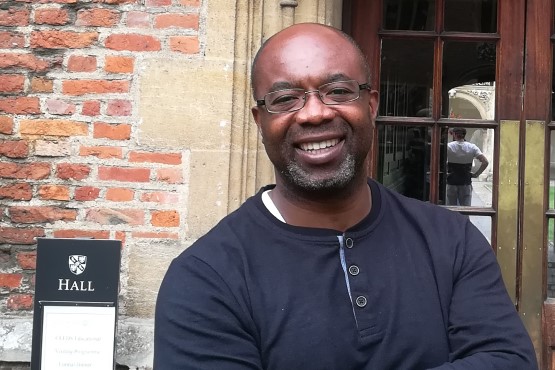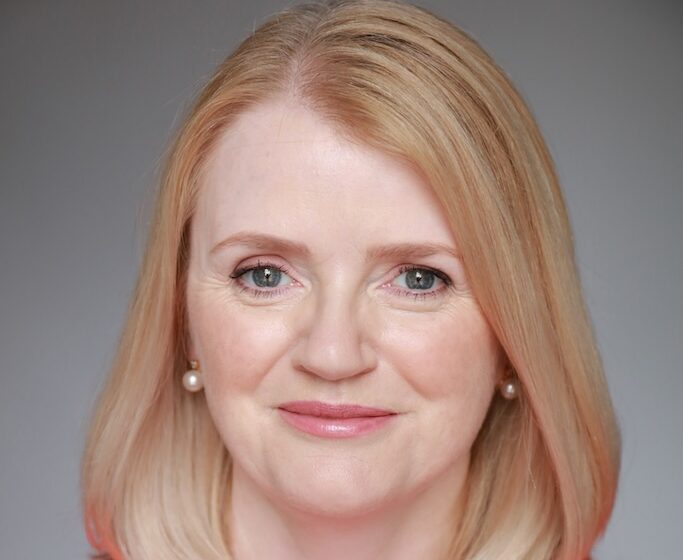“These jobs are important – we’re here to save lives”
MEET YOUR REPS: Prince Obike works at the forefront of change in the NHS while supporting MiP members as a union rep and National Committee member. He talks to us about his varied career and the real value of management jobs.

Prince Obike doesn’t do things by halves—he wears so many hats he could open his own millenary store. MiP’s National Committee member for South Central is also a local MiP rep, chair of the joint trade unions at NHS Frimley ICB and represents MiP on the partnership forum. As a manager, he even has two employers: his job is shared between the ICB and Windsor and Maidenhead council, a unitary authority in east Berkshire.
In an NHS career stretching back more than 25 years, Prince trained as a medical geneticist, and has worked in policy for the Scottish government, in public health, performance assessment, improvement science and project management.
“Honestly, there’s very little in the NHS that I haven’t touched base with,” says Prince, now a senior manager working in integrated care transformation. “My manager will often say, ‘Talk to Prince, he might know a thing or two about this.’ Integration isn’t just in my job title, it’s in my actual practice! So this is probably a good post for me.”
He talks with particular enthusiasm about his recent work transforming dementia services in the Royal Borough. “We began a conversation with anybody who’s interested in dementia care: healthcare, charities, the local authority, carers and patient groups – anyone at all really,” Prince explains. “That was really revealing – a lot of people didn’t know that they were stepping on each other’s toes. And just having that conversation began to open up relationships. That’s part of my job – building relationships and developing them into a movement for change.”
The group is now working to create a “dementia-friendly community” within the Royal Borough, encompassing everyone with the capacity to make life better for people with dementia – including local businesses, police, the fire service and charities, as well as health and care services. “Everybody agreed that we will all have joint ownership of every action – so everyone is accountable to everyone else – and that’s generated a real sense of commitment,” says Prince.
The aim is to improve people’s experience “when they knock on any of our doors” and to make sure that no one with dementia “falls through the net”, he adds. “From even before they are given a diagnosis, right through to the end of life, we want to make sure somebody is there to support them. So we’ve begun to think about an integrated dementia team and how we can bring that about.”
Prince has been an active trade unionist since the start of his career, when he became a UNISON steward and education officer in Scotland. “I’m very passionate about justice, as well as about education and training, so of course I jumped at the chance to do that,” he recalls. He later moved into MiP “because you could get better support as a manager” while still being part of UNISON.
As chair of the joint trade unions at Frimley ICB, Prince negotiated a union recognition agreement with the employer – a significant breakthrough as none of the board’s five component CCGs had ever recognised trade unions. It brought immediate tangible benefits for members through the “levelling up” of terms and conditions, most notably the extension of Higher Cost Area Supplement (HCAS) payments to all staff. “It’s one of the great things we’ve achieved working together as joint trade unions,” Prince says. “Some staff may never know we’ve been involved, but they will still have more money in their pay packets.”
After two years on MiP’s National Committee, Prince hopes to be re-elected for another two-year term this autumn. He sees expanding MiP’s network of local reps and building stronger working relationships with other unions at employer level as the key priorities. “We need to make sure we have one or two reps in every employer and that they’re fully trained, so they’re confident enough to work with the employer and engage with the other trade unions,” he says.
And it’s important too, Prince adds, for MiP to bang the drum for managers in what is often a hostile environment. “In my journey through the NHS, I sometimes find I need to remind staff that the jobs we’re doing are important. We may be creating clinical standards, for example, but when people implement those standards they will be saving lives. People might not see it because you’re not a doctor or a nurse, but the reason you’re doing this job is to save lives. So let’s be clear about that.”
- If you’re interested in becoming an MiP link member or rep, contact MiP organiser, Rebecca Hall: r.hall@miphealth.org.uk.
Related News
-

Catherine McCarthy: If I hadn’t joined MiP, I would just have left the NHS
Programmer, teacher, business analyst and project manager: Catherine McCarthy beings a wealth of experience to her new role as MiP rep at the Health Research Authority. Interview by Craig Ryan.
-

David Williams: MiP reps have a unique role – we know how the system works
New MiP rep David Williams explains how he brought his management experience and risk management skills to the aid of MiP members facing a major restructuring at one of England’s most troubled ICBs.
-

Jenny Owen: You see people at their most vulnerable – it’s a privilege when they trust you
Jenny Owen, nurse, MiP health and safety rep and a manager in NHS England’s North West region, talks to Craig Ryan about championing the underdog and why she still needs a “clinical fix”.